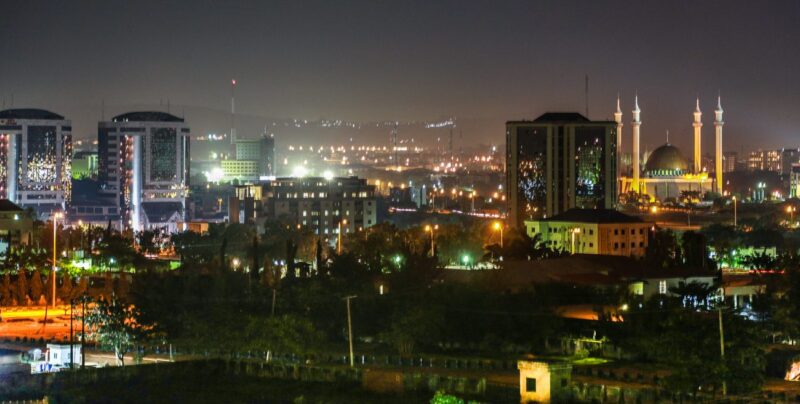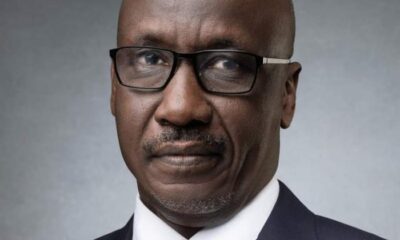Economic Issues
Who Will Light Up Nigeria’s Dark Streets? -By Emmanuel Omeiza Momoh
No wonder the Information Minister, Lai Mohammed, was quick to note that with the current look of things, Nigeria could only enjoy uninterrupted power supply in 2023. One then begins to question the dissonance in the “sermons” made by the high-profile cabinet members.

There are several mantras that seem to be used by Nigerians in their everyday interaction. One of these is “UP NEPA”. This is usually used to signal the presence of electricity especially in major cities like Lagos, Abuja, etc.
President Muhammadu Buhari had recently made it known to the public that Nigerians under his administration, were enjoying an eighteen to twenty-four-hour duration of electricity supply.
This was made affirmed by the Minister of State for Power, Sale Mamman in an interview with the Nigerian Television Authority (NTA).
It is unlikely that the Minister in a purported show of selfless service and accountability, especially in the wake of the nation’s democracy day celebration, said this to assuage the fears of hapless citizens on the invisible efforts the government in power was made to ensure that the country experienced in the epileptic power supply.
No wonder the Information Minister, Lai Mohammed, was quick to note that with the current look of things, Nigeria could only enjoy uninterrupted power supply in 2023. One then begins to question the dissonance in the “sermons” made by the high-profile cabinet members.
At the initial stage, Nigeria’s electricity industry was within the confines of state powers. The inability of the government to bring sanity into the sector led to the privatization of the industry under the administration of former President Goodluck Jonathan.
Consequently, there was a seeming division of labour that led to the emergence of generation, transmission, and distribution companies respectively. Of the tripartite arrangement, the transmission unit is solely managed by the government while the rest are within the territory of private individuals.
The privatisation of the electricity industry was meant to be a sign of relief especially for business owners and household consumers. This was largely due to the poor supply of electricity which was a product of the monopoly that characterised the power sector when it was under the management of the state.
However, reality overtime has proved that to be a wrong notion as many Nigerian communities have been caught off from the national grid. Others have a varying supply of electricity.
This is in dissonance to the average demand on a daily basis. The situation based on the findings of The Economist, a business and financial magazine, is a system of new owners with the same problems. Thus, there had been little or no improvements.
We could, therefore, say without mincing words that the frequent blackouts which is a product of unstable electricity supply are a testimony to the fact that the government has not been able to utilise her powers in improving the situation of things in the industry which is sine qua non to national development.
Electricity consumers are therefore faced with the option of lightening their own streets and world via a plethora of avenues such as the use of generators of varying sizes and degrees, solar-powered equipment and inverters.
This is unarguable to escape the dangers of the “dark world” especially in a country like ours where some if not all of the facilities necessary to facilitate an uninterrupted power supply have been made available at maximal levels.
The nation’s highly revered “White House” (Aso Villa) encounters similar problems as over forty million naira was set apart in the budget to maintain electricity costs necessary for the sustenance of the day to day operations and activities, within the top-notch residential apartment of several high ranking government officials.
Apparently faced by dwindling revenues occasioned by the crash of oil prices at the global market, Nigerians are been forced to swallow the pills of hikes and tariffs which according to the government is a prelude to achieving constant and uninterrupted power supply across the entire country.
This has been met with stiff opposition from relevant quarters ranging from civil society organizations to labour unions etc.
The above has grounded business activities in many cities within Africa’s most populous country according to Bloomberg Magazine. Similarly, the International Monetary Fund (IMF) in her latest report estimated the annual economic loss at about $29 billion.
The Merchant Times Newspaper had in the previous week reported that amidst the cries of stakeholders over the non-implementation of the national metering policy, the Nigerian Electricity Regulatory Commission (NERC) had hiked the price of acquiring electricity meters of both single and double phases.
The end result of this especially for consumers who are not able to purchase the equipment is estimated billings which translates to the fact that consumers pay more and useless.
From the look of things, therefore, Nigeria’s power sector is on the verge of collapse. This according to experts could spell doom for the country as a whole.
Thus, a far-reaching revamp cum resuscitation is necessary especially in the core areas of fundings and investment, manpower development, and increased supply of gas for thermal plants among others.
Momoh, Emmanuel Omeiza is a media and communications manager. Follow him on Twitter @Emmanuel_Moh




















